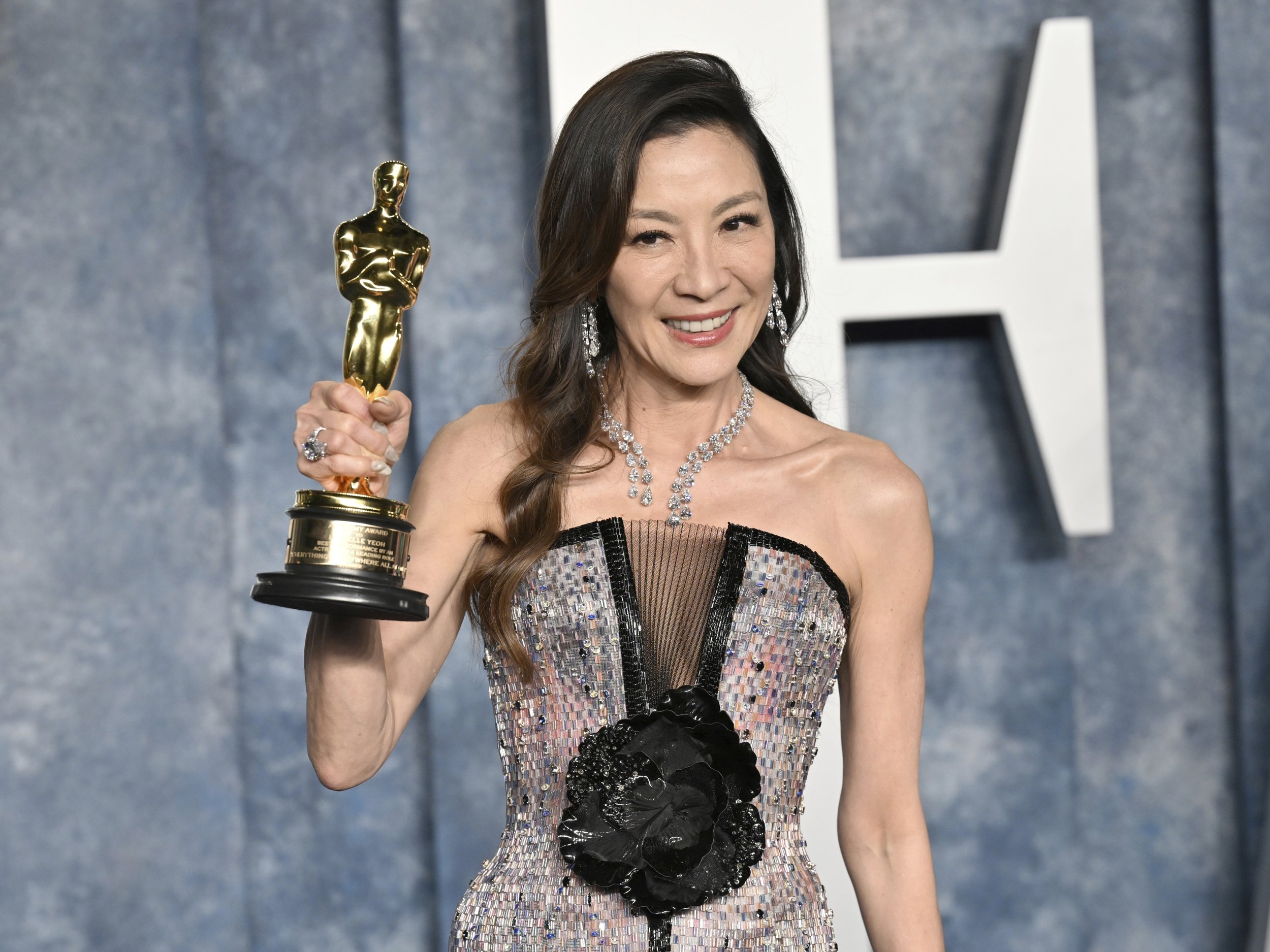Why The Awards For Everything, Everywhere, All At Once Were So Important For Representation
By: Redya Reinarto
Edited by: Angelina Gaol
“For all the little boys and girls who look like me, watching tonight, this is the beacon of hope and possibilities. This is proof that dreams, dream big and dreams do come true. And ladies, don't let anybody tell you you are ever past your prime. Never give up.” – Michelle Yeoh.
Movies are of joy, love, sorrow, pleasure, and pain. Movies are of feeling bundles of emotions warped into single long seatings. Movies are of escaping melancholic realities into exhilarating unknowns. Movies are of turning fantasies into life and hopeless aspirations into endless possibilities.
While movies are arguably one of the greatest creations made, their relevance and worth are most definitely dependent on the opinions of the audience and the critics. Great reviews tend to give movies the instant validation and acknowledgments that attracts wider ranges of audiences globally. Reviews like “incredible acting, stunning visuals, and a really deep, powerful story” (Rotten Tomatoes), generally increases the likelihood of captivating audiences and bringing them into the cinemas to watch the movies. However, no matter how influential reviews can be, nominations and golden trophies for awards undeniably gives the movies the instant and official seals of approval.
The awards give overviews of all the hardwork and effort dedicated into making the best films possible. From writing the scripts to working behind-the-scenes preparations, all of the resilience devoted gets acknowledged and recognized. The creative minds that put their blood, heart and soul to the movies, finally get to experience and appreciate the value of their tireless energy and effort from the recognitions and awards presented to them. The awards highlights each individual's commitment and good work and symbolizes the fact that discipline, perseverance and hardwork will ultimately lead to success. Most importantly, the acknowledgements the awards give to the nominees and winners, bring attention to the public, which in doing so reveals the deeper meaning the awards signifies for the outside world: the value of representation.
Representation has long been a crucial factor in influencing society and standardizing social norms. This is why the Oscars has such a huge impact on not only the film industry, but also society as a whole. The Oscars give the public the opportunity to be heard, feel mattered and represented through the diverse selections of movies they acknowledge, that carry valuable morals and traits different cultures and races hold passionately. In fact, the Academy Award win for the film "Everything, Everywhere, All At Once," became a very important and monumental turning point for the Asian community and changed the course of cinematic history completely.
In the movie "Everything, Everywhere, All At Once," Evelyn (Michelle Yeoh), a Chinese American immigrant and her husband Waymond (Ke Huy Quan), own a laundry with their daughter Joy (Stephanie Hsu), whom they have a rocky relationship with. Their family is detrimentally burdened with a boatload of debts and expenses, to the point that the main characters’ marriage might potentially get a divorce.
Eventually, Evelyn is sucked into a thrilling multiverse where she learns that the entire universe is in danger. By investigating its dimensions and living the alternative lives she could have had, she is the only one who can save it.
From the successes the movie EEAAO made, Michelle Yeoh and Ke Huy Quan were able to reach a growing pinnacle point in their careers as well. With Quan, nominated for the best-supporting actor, he historically become the second Asian actor to win best-supporting actor at the Oscars ceremony. And Yeoh, who was initially nominated for best actress, became the first Southeast Asian actor to win in her category.
Growing up, I never saw anyone who looked or behaved like me on tv or in movies. Asian stereotypes in movies at the time were far different from this. That has changed now. Although the discussion over Asian representation in Hollywood is by no means new, it feels more important now. In part because numerous Asian actors are succeeding at this time, who have all so far used their acceptance speeches to discuss diversity. Asians often appear in movies without names, faces, or emotions; they are often presented as martial artists or soldiers, and they also frequently have strange accents and odd names. And that came after it was allowed for Asians to play Asian characters: At the Screen Actors Guild Awards last month, 94-year-old film veteran James Hong noted that white performers frequently portrayed Asian characters in the early years of Hollywood. He stated that “guys with eyes taped up like this and they talk like this because the producer said the Asians were not good enough and they are not a box office,” he said, “but look at us now.”
An emotional Quan spoke of his long break from acting due to "so few possibilities" and how "the landscape looks so different now than before" after his historic win at the Oscars. The number of Asian actors who won Oscars on one night was previously broken by Yeoh and Quan. (The previous record was one.) Yeoh is only the second woman of color and just the second Asian to be nominated for best actress in that category. She is also the first to openly embrace her Asian ancestry. Although Asian actors have just recently been appreciated for roles that challenge stereotypes, we've come a long way from being simple servile sidekicks to white protagonists. As an Asian, we do not want to be cast in limited, and neither do Asian viewers want to just be understood in the context of our ethnic heritage. In a diverse setting, we want to be recognized and praised. If there was a shift in the tide of Asian representation, in my opinion, EEAAO has helped inspire all Asians all over the world to reach their dreams.


